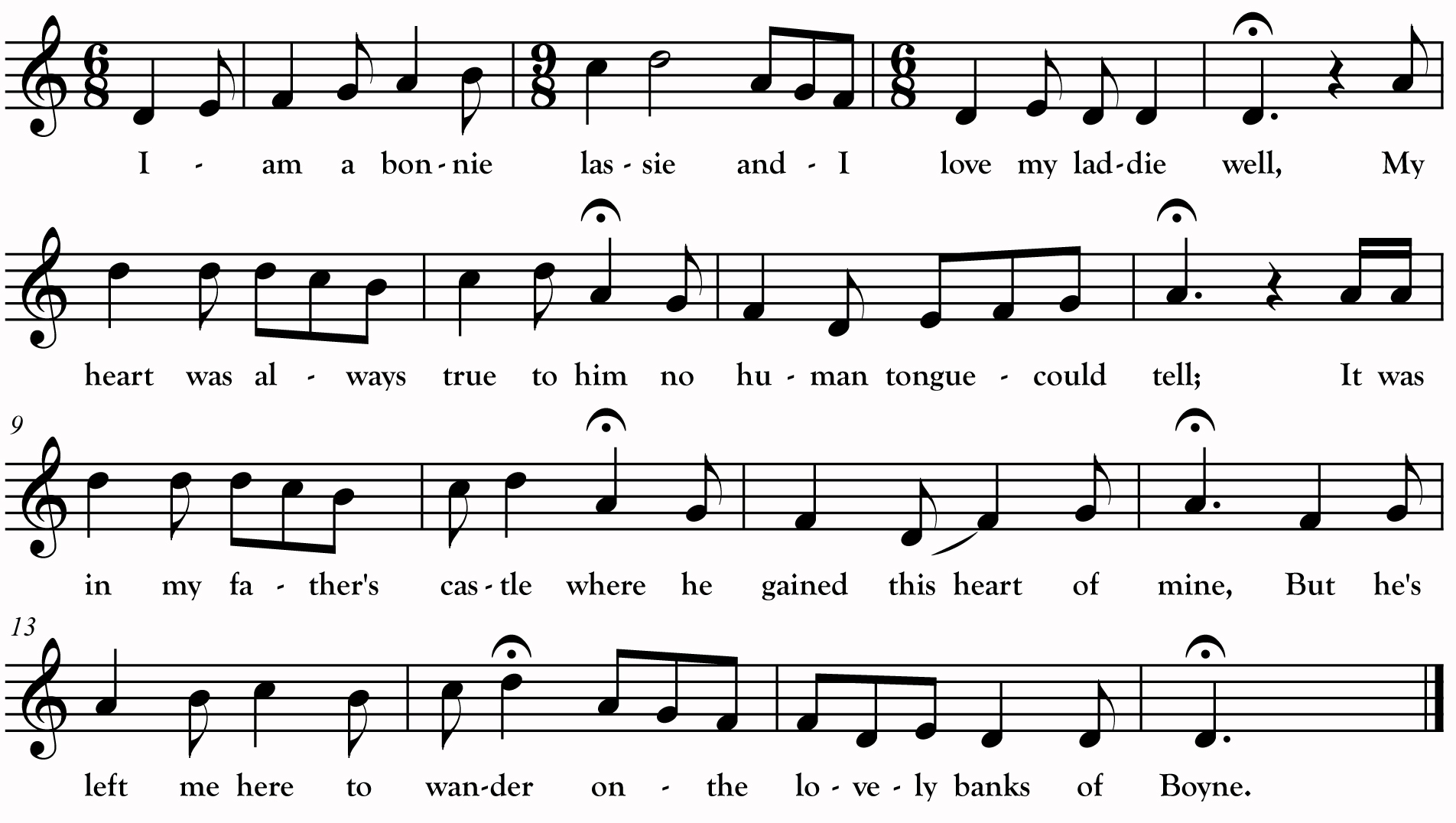Banks of the Nile (Laws N9)
INTRODUCING: NORTHWOODS SONGS on YOUTUBE!
Starting this month, I will be videotaping myself singing the Northwoods Songs song of the month and posting it on Youtube. I am excited to add this new dimension to the column!
Here I am singing Mike Dean’s “Banks of the Nile” while on vacation in the pines of beautiful Bowen Island, British Columbia last week. [Listening now, I realize I have considerably changed the first line of the melody on every verse but the first! The many other variations and deviations are my own creative interpretation as well.]
Hark! hark! the drums are beating, my love, I must away,
I hear the bugle calling, I can no longer stay;
We are ordered out from Portsmouth for many a long mile,
To *[join the British army] on the banks of the Nile.
Oh, Willie dear, don’t leave me here behind to weep and mourn,
So I may curse and rue the day that ever I was born,
For the parting from my sweetheart is like parting from my life,
So stay at home, dear Willie, and I will be your wife.
The Queen she calls for men, love, and I, for one, must go,
The Queen she calls for men, love, I dare not answer No;
We must away to face the foe while cannons roar the while,
To fight with Briton’s heroes on the banks of the Nile.
Then I’ll cut off my yellow hair and go along with you,
I will put on men’s clothing and go see Egypt, too;
I will cherish and protect you through hardship and through toil,
And we’ll comfort one another on the Banks of the Nile.
Your waist it is too slender, love, your fingers are too small,
I am afraid you would not answer when on you I would call,
Your delicate constitution would last but a short while,
Among those sandy deserts on the Banks of the Nile.
Oh, cursed be the cruel war and the hour it first begun,
For it has robbed old Ireland of many a noble son;
It robs us of our sweethearts, protectors of the soil,
And their bodies feed the wild fowls on the Banks of the Nile.
But soon the war will be over and we’ll all be coming home,
Unto our wives and sweethearts we left behind to mourn;
We will kiss them and embrace them with their little winning smile,
And we never will return again to the Banks of the Nile.
______________________________________________
Once again this month we have a song I transcribed from a 1924 recording of Minnesota-based singer Michael Cassius Dean (with the full text taken from Dean’s 1922 songster The Flying Cloud). Versions of “The Banks of the Nile” have been collected all over the English-speaking world. The scenario of the girl pledging to dress as a man to follow her love to war (or sea) will be well-known to anyone familiar with traditional folk song.
As for the historical context, there were several British campaigns in Egypt (and Sudan which is also bisected by the Nile) throughout the 1800s culminating in Britain’s takeover of Egypt in 1882. This song likely dates from early to mid 1800s. Of course, two centuries later, western governments are still sending soldiers to that part of the world and the “cruel war” is far from over.
*Some versions of “The Banks of the Nile” mention the dark skin of the Eqyptian/Sudanese adversaries in the fourth line of the first stanza. Dean’s version does so in a rather offensive way so I opted to borrow a variant fourth line from other versions.


